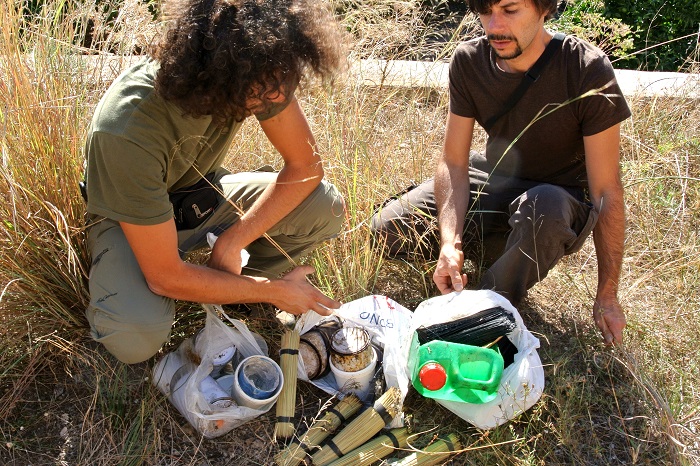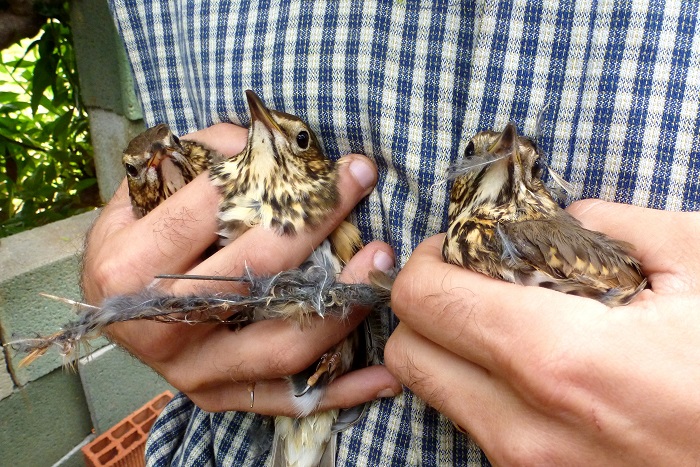CABS bird protection camps in Spain

The authorities in Spain have been turning a blind eye to bird poaching for years. Although the huge limestick trapping installations can be seen by anyone from more than a kilometre away, and electronic decoy callers playing at full volume guide the way to the illegal trapping sites during the migration season in October and November, hardly any bird-trappers were found or convicted at the beginning of the 2010s. Poaching was one of the national traditions covered by the authorities, the police and the judiciary, and in some places it still is today. The only reliable police unit specialising in combating bird-trapping was not allowed to conduct night patrols until 2012. Since the installations are only operated during the night, the poachers were completely safe. At several meetings with the authorities and after a small protest action, we managed to get this special unit to work at night with us and dedicate more time and resources to tackling the illegal use of limesticks.
CABS launched our first bird protection camps in eastern Spain in 2011. Since then, each October and November we spend between two and three weeks in the region. Initially, our main focus was on the work against poaching with limesticks in the Valencian "Parany" and the Catalan "Baracas". Since 2018 we have also had more resource to tackle the illegal bird-trapping with nets.

Approximately 1,500 limestick trapping installations are mapped and routinely inspected each autumn. Our teams conduct night patrols to determine whether the electronic decoy callers are active. If the callers are running, the police are called and the traps seized and the site is shut down. Usually the poachers sleep in a hut within the facility and can therefore be also caught in-situ. If a police operation is not possible, our CABS teams collect the limesticks ourselves if possible. In this way, several thousand limesticks are seized every year and numerous poachers convicted. Our operations have been successful - the number of traps and poachers has been decreasing significantly for some years now (see our Spain operational statistics).
The work against the use of clap nets is much more difficult, because the traps are less easy to find. Because live decoys are used by poachers and no decoys are used at night, it is difficult to determine which sites are currently or recently in use. Our teams therefore have to manually check the prepared trapping spots every day - a very time-consuming task.






